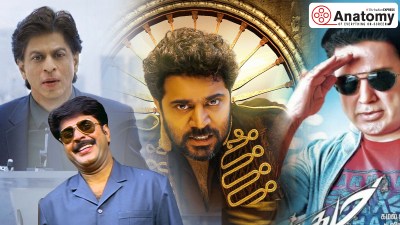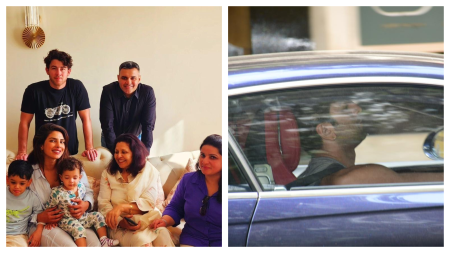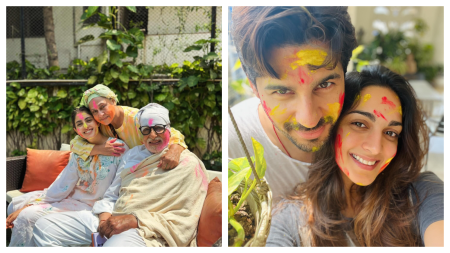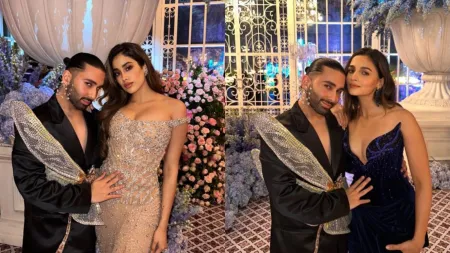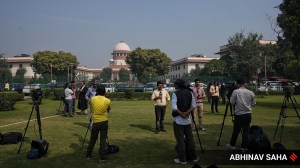- India
- International
No Love Like Dilip Kumar’s in ‘Devdas’
In Bimal Roy’s Devdas, Dilip Kumar plays the doomed lover with great sensitivity.
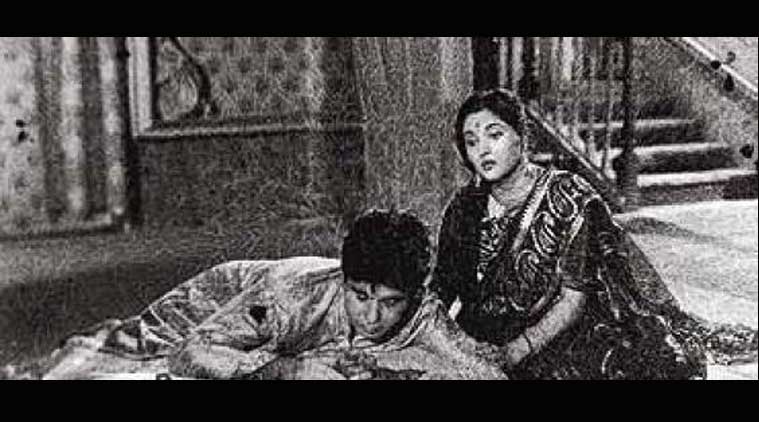 In Bimal Roy’s Devdas, Dilip Kumar plays the doomed lover with great sensitivity.
In Bimal Roy’s Devdas, Dilip Kumar plays the doomed lover with great sensitivity.
Film: Devdas
Year: 1955
Director: Bimal Roy
Cast: Dilip Kumar, Suchitra Sen, Vyjayanthimala, Motilal
Music: SD Burman
DVD: Shemaroo
Sarat Chandra Chattopadhyay’s story about a boy named Devdas is essentially a two-fold love story—in the beginning it’s about Devdas’ love for his childhood sweetheart Paro and when he can’t be with her, it turns into his love for his pain. In Devdas, Indian pop culture earned a loverboy who became a ‘type’—there is the good boy, the bad boy, the boy next door and then there is Devdas. And when Bimal Roy adapted the literary classic and got Dilip Kumar to play the eponymous role, the ‘type’ got itself an image that is as effective today as it was in 1955 when the film released. As showcased in every frame of the film, if tormented longing and emotional restrain had a name it would be Dilip Kumar in and as Devdas.
Roy was fascinated by Sarat Babu’s novel but it grew into a mission when he worked as the cameraman for PC Barua’s 1935 version of the film starring KL Saigal. Roy decided that he too would make his version one day and it could only be with Kumar. The casting for the female leads proved to be a big battle. Everybody wanted to play Paro while nobody wanted to play Chandramukhi. In an interview, the film’s screenplay writer, Nabendu Ghosh revealed that Bimalda’s first choice for Paro was Meena Kumari and Nargis as Chandramukhi. Meena could not do the role because her husband Kamal Amrohi laid down certain conditions, which Bimalda did not agree with. Nargis refused because she wanted to play Paro. Bina Rai and Suraiya also wanted to play Paro. Finally Suchitra Sen was roped in for her first Hindi film. For Chandramukhi, Vyjayantimala came to the team’s rescue as Ghosh said, “She came to Bimalda and said, “I am ready if you think I can do it.”
In Devdas, the women do a lot more than the man—Paro enters his house in the middle of the night to confess her love for him while Chandramukhi gives up her dancing profession to take care of him. Devdas does too little, reacts too late and doesn’t take a stand when he should have, but then that’s what makes his character. His anger with himself becomes his anguish, which he internalizes.
Bimalda treats the unraveling of the ‘loser in love’ with a lot of dignity. It’s a melancholic film but the pain is never celebrated—it’s almost matter of fact. Kamal Bose’s exceptional lighting and composition of the shots of Devdas in a drunken stupor with the bottle and glass next to him tell their own poetry. SD Burman’s music and Sahir Ludhianvi’s searing poetry beautifully add to the film’s tone. I can never get over Jisse tu qubool kar le woh sada kahan se laun.. tere dil ko jo lubha le woh ada kahan se laun. And then there is Talat Mehmood’s Mitwa lagi yeh kaisi. The dialogues of Devdas penned by Rajinder Singh Bedi also do a lot for the film. The lines are minimalistic yet emotionally loaded. Who can ever forget “Kaun kambakkht hai jo bardaasht karne ke liye peeta hai.. main toh peeta hoon ki bas saans le sakun.” As Devdas’ friend Chunni babu, Motilal has some of the best lines and Motilal clearly relished the words as well as his role.

But the film would not be what it is without Kumar who plays the role so valiantly and with such haunting sensitivity that his pain becomes a mood—something that clings to his skin as much as ours. Watch the way he brokenly confesses, “Phir bhi Paro ki bahut yaad aati hai…” or his quiet acceptance of Chandramukhi’s love with “agar marne ke baad mel hota hai toh main tumse kabhi durr nahin reh paunga.”
Ghosh revealed an anecdote which goes to show Kumar’s commitment to the role. “One day, we found him wandering alone, agitated. He seemed to be in deep thought and would not come near us. I went to him and asked, “Yusuf bhai, aap bahut pareshan lag rahe hain?” He said, “Nabhendu babu, woh teeno mere kaandhe pe baithe hue hain.” I asked, “Kaun teen?” He said, “Sarat babu, Pramatesh Barua aur Kundan Lal Saigal.”
In a rare interview in the late 90s, Kumar said that out of all the films he had done, “I still have a fondness for Devdas.” In his autobiography The Substance and The Shadow, he confessed that when Bimalda first offered him the role, he was hesitant to play Devdas because he feared it could “mislead the more vulnerable youth to believe that alcoholism offered the best escape from the pain of losing in love.” He had his issues with some scenes too including the iconic scene when Devdas hits Paro. In the interview, Dilip saab said, “I still cannot bring myself to agree with Devdas, when he hits Paro with a stick and says, ‘I have given you this mark to punish your pride’. But I played the part. And because the author was good, he turned the most nonsensical idea into sense.” In the last scenes of the film, Kumar looks as if he’s literally disintegrating in front of us. The entire sequence from the time he gets off the train and takes the cart to reach Manikpur, is breathlessly poignant. When he says, “Arre bhai yeh raasta kya kabhi khatam nahi hoga,” you pray the distance gets covered quickly so that the lover can reach his beloved’s doorstep only to die in front of her.
Some love stories are like this.
Click for more updates and latest Bollywood news along with Entertainment updates. Also get latest news and top headlines from India and around the world at The Indian Express.
Photos
Apr 26: Latest News
- 01
- 02
- 03
- 04
- 05











